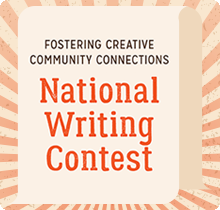The machine breathed.
Its chest rose, fell. Each hiss followed a gasp, each flap, a hollow thump.
The father remembered.
His chest rose, fell.
Tears chased smiles, each memory, an echoed flump.
Present turned to past, future lay fallow. His memories were harvested.
“Remember the first word you wrote? A black Sharpie on your mom’s Powder Blue wall.” The father furrowed his brow and shook his head slowly with a distant stare, “Man, was she mad. It’s still there—I still laugh. At times, I cry...
“Remember what you told me when your mom passed? You said I’d always have you and the word on the wall. Your eyes twinkled and you feigned a foreboding voice, ‘And the word became flesh and dwelt among us.’ It’s true, we become words, together we become a sentence, paragraphs, and the epic sagas which described your mischief.
“You’d say something profound then end it with a joke. You once said, ‘Each memory is a still frame, as we thumb through we become Sylvester chasing Tweety.’ Remember all the little things, Colin. They keep us from becoming painted over graffiti.”
The father chuckled in reflection, “You told me, ‘God makes room for more words by white washing the graffiti on our walls. Humanity is simply layer upon layer of white wash.’ I found that sad. Then you told me about Wintercearig and the cutting room floor. ‘Words narrate our memories to be edited into blockbusters.’ I still marvel at how you turned words into flesh in order to pull me back.”
The nurse raised each lid in turn. The father inhaled for his son. “He stopped remembering, 46 minutes ago. He told me he’d always remember.” The father’s pupils became large black clocks, the machine’s flashed red digits, the nurse’s flitted about their cages like Tweety.
“He loved spaghetti...When everyone else wanted pizza, he ordered spaghetti. Big heaping plates. The steam would rise before his face and he’d smile at me.”
His son’s face was pink and warm to his touch. The solenoid flopped.
“Once, we drove past this sad little cemetery, perfect, undulating frames of granite upon flowing man-made hills. Colin called it a home movie with closed captioning—Graffiti carved in stone. His humor caused me to pause and stare. Whenever he noticed me drifting off he’d always snatch me back, ‘Dad, look, they have benches for you to sit and feel sad remembering your dead grandma. It’s the bench stop to Wintercearig.’”
The nurse’s pupils became pools. She blinked repeatedly. The machine’s eyes followed suit.
“Colin once told me, ‘Good people don’t go to heaven—heaven is for the selfish. Good people are frozen in memories like home movies.’”
The father expired for the machine.
The nurse darted away.
The doctor entered.
“Mr. Roberts, I...”
“He never liked cheese on his food, except for nachos—strangest thing. At football games he’d order hot nachos, stare through the steam and smile at me.”
“His EEG...”
“Colin wrote this on my arm before you sedated him, ‘Here’s to the shit we talk.’ He looked through my tears and smiled. It’s fading. God is white washing his walls.”
“There’s no brain...”
“Colin told me of this place, Wintercearig. I laughed it off to his imagination. But, it’s real, a cold winter of enveloping sorrow that freezes about you. All your memories are reaped, no more are sown. We become fossils frozen in amber—little home movies. There was always another harvest with Colin.”
The machine stopped remembering, its pupils fixed, unresponsive. An expiring breath trailed off to freeze a serpentine hiss across the air.
The undertaker leaned in. “Mr. Roberts, is there any little thing, that Colin would have liked?”
The father’s breath froze in little crystals that snowed upon his graffiti. He stared at his arm. “I don’t remember the shit we talked. It’s cold, do you feel it? So bittersweet...”



